European breakaway league: Is football about to change forever?
- Published
- comments
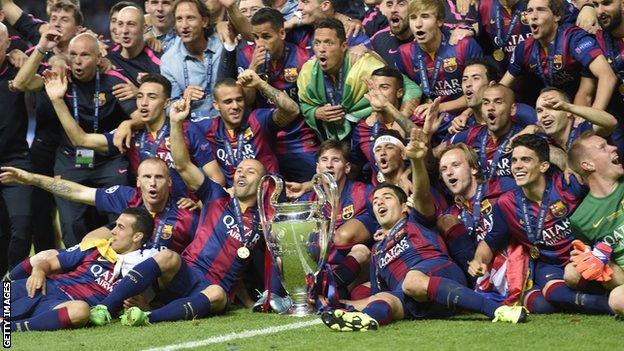
Barcelona won the Champions League last season
The beginning of a secret plot to form the most controversial breakaway in football history?
Or an innocent catch-up with old friends to discuss a pre-season tournament?
A degree of intrigue surrounds a meeting this week of the Premier League's big five clubs at prestigious London hotel The Dorchester.
According to The Sun, which broke the story, Manchester United, Manchester City, Liverpool, Arsenal and Chelsea were there to resurrect an idea we have seen mooted in the past - a European super league.
This time, the talks were with American billionaire Stephen Ross.
It would be a new, invite-only competition that would see the biggest English clubs partner with their continental counterparts.
Such a move would mean the end of the Champions League and pose a huge threat to both the Premier League and Uefa, which governs European football.
Similar to the outcry that accompanied the Premier League's aborted plans for a '39th game', the story sparked an inevitable backlash from those who view such an idea as elitist nonsense, motivated by greedy clubs about to benefit from a record £8bn TV deal and already under pressure over the cost of tickets.
West Ham co-chairman David Gold told The Daily Telegraph that the plan "would destroy football as we know it", adding: "It's so sad that five clubs all owned by foreigners are even considering it."
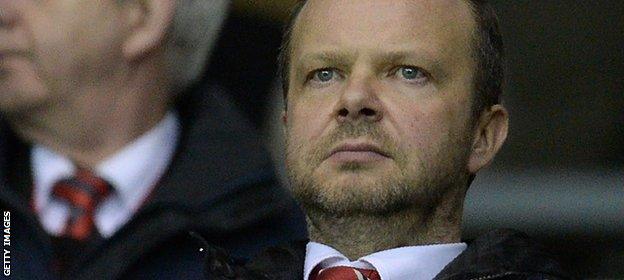
Man Utd executive vice-chairman Ed Woodward was reported to have attended the meeting in London
It has also been noted that the so-called 'big clubs' present at the summit currently lie third (Arsenal), fourth (Manchester City), fifth (Manchester United), eighth (Chelsea) and 11th (Liverpool) in the table.
Leaders Leicester City and closest rivals Tottenham, who could go top of the table on Wednesday evening, do not seem to have been invited.
Ross himself was not present, the talks held with executives from his company Relevant, which organises increasingly important and lucrative summer tours and pre-season tournaments - under the guise of the International Champions Cup - for Premier League clubs in the United States, China and Australia.
Given how much business Ross has done with these clubs, the meeting, which reportedly took place on Tuesday, should not therefore come as that big a surprise - and those present did discuss future tours and fixtures.
They also insist a breakaway from the Premier League is not on the agenda. However, the talks did focus on possible reform of the Champions League, something that is very much on the agenda within European football's corridors of power. A number of forces are driving this.
Barcelona president Josep Maria Bartomeu backs Champions League wildcards
Last week, the Barcelona president Josep Bartomeu told me he was in favour of tennis-style 'wild cards', guaranteeing automatic entry to the Champions League for big clubs that miss out on qualification via their domestic leagues.
Many fans despise the idea, believing it devalues the Champions League and means unnecessary meddling with the meritocracy, integrity and excitement of domestic competition, as well as adding up to unfair protectionism for the richest clubs, but it is easy to see why this more pragmatic approach, offering greater certainty, would appeal to some.
This year, for example, the likes of Manchester United, Liverpool and Chelsea all seem likely to miss out on the riches of the Champions League, as clubs like Leicester City threaten an elite that, since 1992, has enjoyed almost routine entry to Europe's premier competition.
Thanks to Uefa's huge television deal with BT, a British winner of the Champions League could now hope to earn around £100m, so failing to qualify is a serious dent on the balance sheet. The problem is that the Premier League's own bumper £5.136bn TV deal has been something of a leveller.
Manchester United are understood to be in favour of the traditional footballing calendar, but with US owners the Glazers, it would not be a shock if the club looked at the American model of closed sports leagues, with no threat of relegation, and asked whether automatic qualification for the Champions League was that much to ask for a club of its standing.
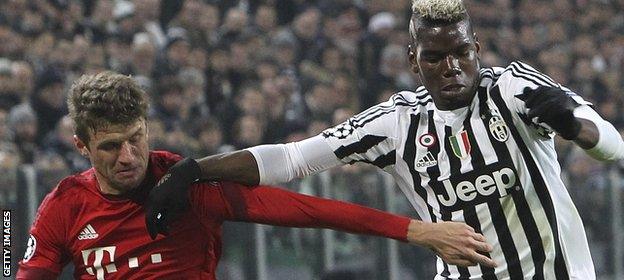
The big teams want more matches between the big teams
It may be on course to become the richest club in the world, but United's share price has dropped 20% since the start of the year.
The drop in investor confidence could be down to a growing nervousness about increasing competition, especially at a time when China is emerging as a serious footballing powerhouse and suddenly in the market for the top talent.
The European Club Association - which represents more than 200 teams - is in discussions with Uefa about the future of the competition, with no unified position expected until the latter months of 2016. And last month, Christian Seifert the head of Germany's Bundesliga, said that a "Super League" could be beneficial to his clubs.
A memorandum of understanding between the ECA and Uefa, lasting until 2022, was signed last year - but there is a sense the current formats need improving, with the group stages of the Champions League and Europa League seen as predictable and dull.
And while it may seem ironic given the recent failure of English clubs, the continent's top teams are particularly concerned about their ability to remain competitive with the Premier League once its new TV deal kicks in next season.
Premier League is our biggest rival - Barcelona president Josep Maria Bartomeu
Recall again that Bartomeu told me he now sees the Premier League as a bigger rival to Barcelona than Real Madrid.
Hence the desire for all Champions League games to be as enticing for fans and broadcasters as possible, with every match a compelling offering. The view is that currently this is not the case.
The meeting with Relevant should be seen in this context then, as an attempt by the Premier League's top clubs to take stock of the growing pressure from their European rivals for a new and improved Champions League or Super League and to form a collective position on the debate.
It is too soon to judge what view English clubs will form. There is no reason to think they would rebel against Uefa, but there is no doubt change is in the air.
This all comes at a fascinating moment for the sport. We are in the midst of regime change at both Fifa - the world governing body - and Uefa, offering new opportunities for the game's various interests to show they mean business.
There is growing frustration among football's stakeholders - the players, the fans, but especially the top clubs - that their interests have been neglected.
Despite employing, training and then providing the world's best players, the top European clubs feel that they are sometimes taken for granted.
They are frustrated by the prospect of a 40-team World Cup - as suggested by new Fifa president Gianni Infantino - which would mean more call-ups, injuries and greater pressure on the footballing calendar.
They are angry about the disruption a winter World Cup in 2022 will cause. They note that Fifa's reforms do not mean the clubs - or fans and players - will have any representatives on its new council. And they will be preparing to fight their corner when it comes to negotiating a greater share of Uefa revenue.
Here, then, is a timely reminder of the clubs' clout, what is at stake and what the future may hold.
- Published2 March 2016
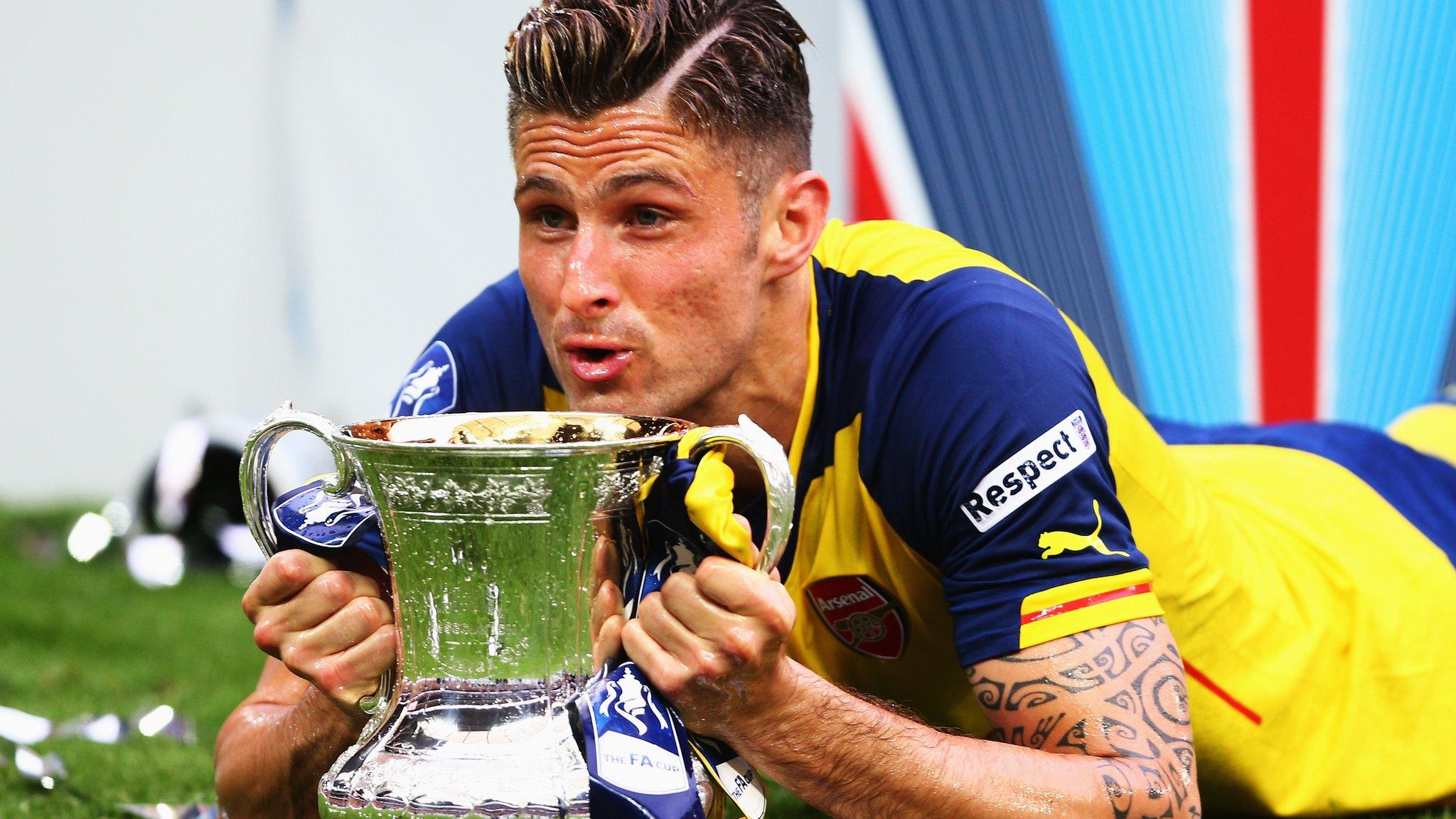
- Published9 February 2016
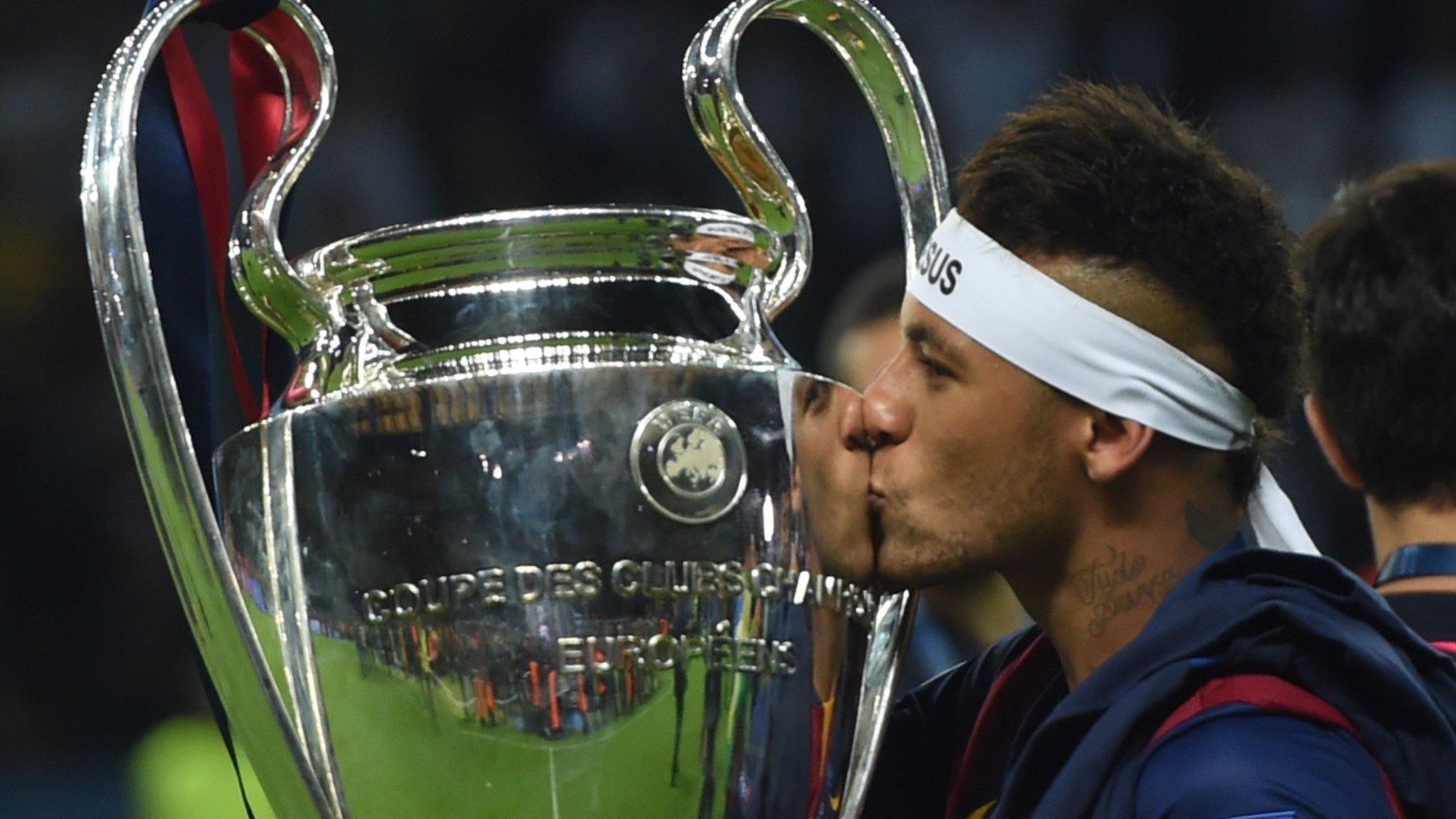
- Published22 February 2016
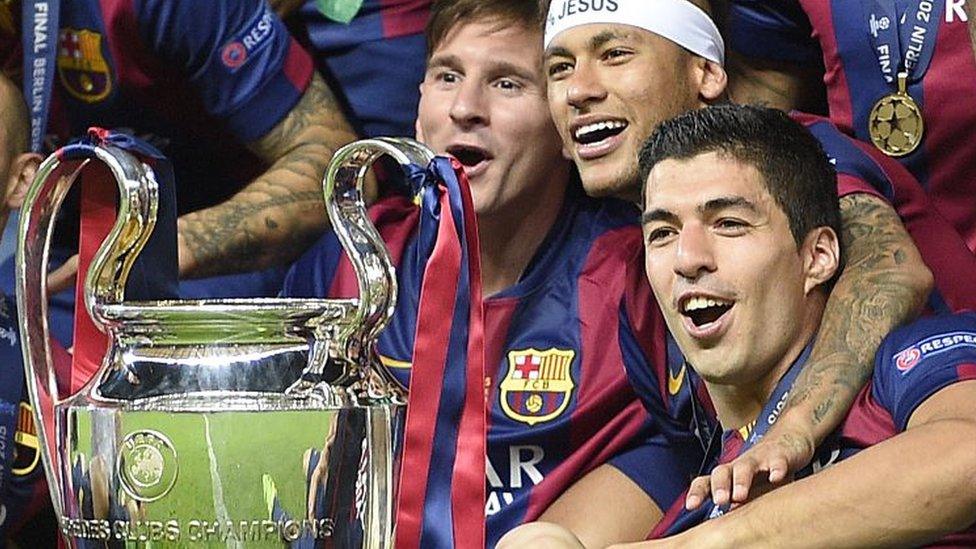
- Published2 November 2018

- Published7 June 2019

- Published20 June 2016
